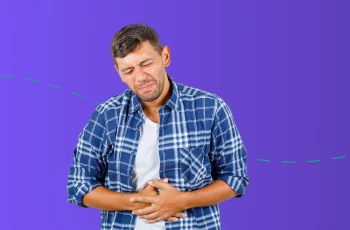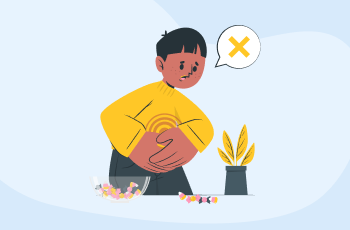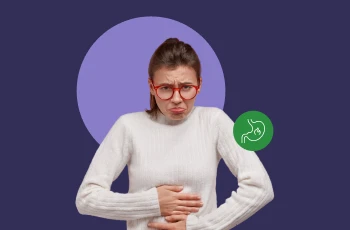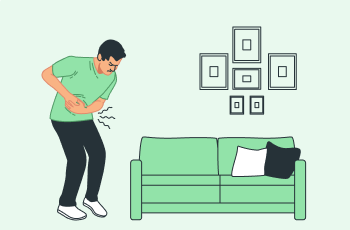The stomach flu: How long are you contagious?
We've all had that sinking feeling with the sudden wave of nausea, and the rumbling stomach with the intense urgency to scramble for the bathroom. This is the unwelcome visitor known as the "stomach flu" and it is important to know how long you will be out of action and how long you will be contagious and potentially spreading it to other people you come into contact with.What is stomach flu?
Firstly, despite the name, the stomach flu isn't caused by the same virus that causes the actual flu (influenza). This illness gets its proper medical name, viral gastroenteritis, from the various viruses that cause it. Norovirus is the most common culprit, but others like rotavirus, adenovirus, and astrovirus can also cause gastroenteritis. The viruses irritate the lining of your stomach and intestines, affect your ability to digest your food, and could cause gas and bloating.The unpleasant stomach flu symptoms
- Nausea and vomiting: That awful queasy feeling builds, followed by forcefully throwing up everything in your stomach is a common symptom.
- Diarrhoea: Watery and frequent, it's your body's desperate attempt to flush out the viral invaders as quickly as possible.
- Abdominal pain: Your stomach may feel like it's constantly churning and filled with gas, making you feel bloated.
- Fever and aches: These symptoms add to the feeling of being washed out and exhausted.
What are the causes of stomach flu?
When it comes to these viruses, the usual suspects lurk in predictable places:- Bad food: That slightly undercooked chicken, the salad you ate at the poorly cleaned restaurant, or questionable leftovers may all be potential culprits.
- Someone's been sick: Sharing spaces with an infected person, whether it's your roommate, a classmate, or a coworker, opens you up to catch the virus from them.
- Contact with germs: Touching contaminated surfaces, like doorknobs, elevator buttons, or someone's unwashed hands, and then absentmindedly touching your face is a common way to spread the stomach flu.
How long is stomach flu contagious?
Stomach flu viruses are incredibly resilient:- The invisible germ carrier: You might be contagious even before severe symptoms strike.
- The worst offender: Unsurprisingly, you're at your most contagious when actively battling the symptoms, with bouts of vomiting and diarrhoea.
- It lingers on: Even after you finally start feeling normal again, some viruses can hang around in your stool for days, sometimes even a couple of weeks so it's crucial to keep up your stringent hygiene practices with handwashing.
How do I deal with stomach flu without infecting everyone?
Unfortunately, there's no easy treatment that makes stomach flu disappear. It's mostly about managing the symptoms, being patient, and protecting those around you with strict hygiene practices:- Hydration is key: Vomiting and diarrhoea can lead to dehydration surprisingly fast. Small sips of water, clear broth, or oral rehydration solutions are crucial to keeping your body hydrated.
- Rest: This is essential as your body's working overtime to battle this virus.
- Medications: Over-the-counter pain, fever, or nausea medications can make the whole experience slightly less uncomfortable. But remember to avoid anti-diarrheal unless necessary (like having an important meeting) because they may prolong how long the virus stays in your system.









 Facebook
Facebook Instagram
Instagram LinkedIn
LinkedIn


